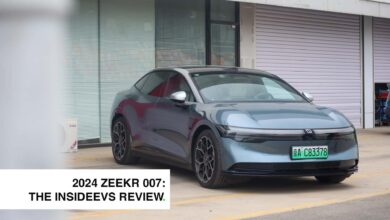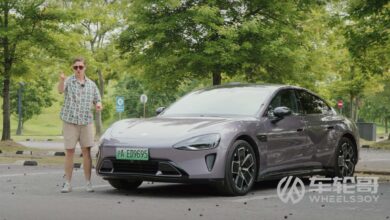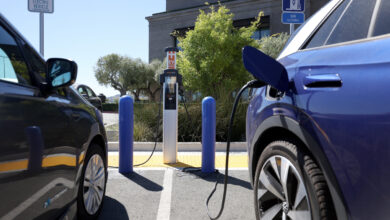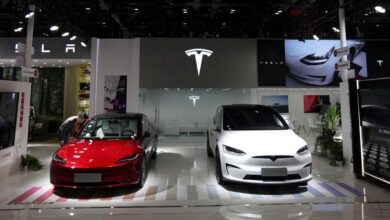China’s BYD and Neta target Indonesia market with EV investments
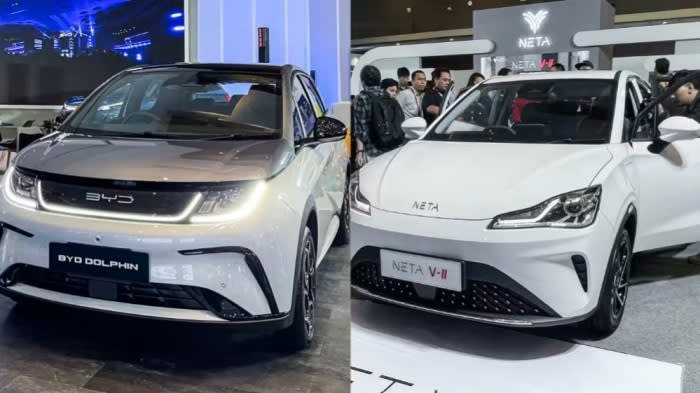
Stay informed with free updates
Simply sign up to the Electric vehicles myFT Digest — delivered directly to your inbox.
Chinese electric-vehicle makers BYD and Neta Auto are poised to challenge Japan’s dominance in the Indonesian car market, announcing new investment plans and rolling out their latest models at an auto show in Jakarta.
Indonesian property developer Suryacipta Swadaya announced last week that BYD will build a $1bn factory on 1.08 sq km of land in West Java province. Construction is slated to start in August and operations are to commence in January 2026. The plant’s capacity will be announced later, the company said.
“We are confident that the facilities to be built will be able to drive the growth of Indonesia’s automotive industry and transition towards clean energy while also supporting the economy, especially in the surrounding region,” Eagle Zhao, president director of BYD Motor Indonesia, said in a statement.
About 1mn new cars were sold in Indonesia last year, making it south-east Asia’s largest auto market. Japanese brands such as Toyota and Mitsubishi control more than 90 per cent of the market, but Chinese automakers are now moving in with EVs.
“This year, Neta Indonesia is committed to increasing our investment in Indonesia by initiating local production,” Jerry Huang, Neta’s managing director, last week during a press conference at the auto show.
In November, the company signed an agreement with Handal Indonesia Motor to assemble EVs in Indonesia. It is scheduled to start operations in the second quarter of this year.
This article is from Nikkei Asia, a global publication with a uniquely Asian perspective on politics, the economy, business and international affairs. Our own correspondents and outside commentators from around the world share their views on Asia, while our Asia300 section provides in-depth coverage of 300 of the biggest and fastest-growing listed companies from 11 economies outside Japan.
More than 80 brands, including motorcycle makers and parts businesses, participated in the Periklindo Electric Vehicle Show. Periklindo, or the Indonesian Electric Vehicle Industry Association, held its first EV exhibition in 2022. This year, the venue’s floor size was more than double last year.
BYD, making its debut at the Jakarta EV show, unveiled the Dolphin, deliveries of which from China are expected to begin in July, priced at about 425mn rupiah ($26,500) — half the global average for an EV but far out of reach for most consumers in a nation where average monthly wages are about 3.18mn rupiah, according to August figures from the Central Statistics Agency.
Neta, another Jakarta EV show newcomer, revealed its Neta V-II, which will be priced from 200mn rupiah to 300mn rupiah, making it the least expensive model in the company’s Indonesia line-up.
“Neta V-II was born as the beginning of our commitment to the Indonesian market and became the first Neta product to be assembled locally,” Huang told reporters.
In the US and other markets, EV demand is slowing, with fierce competition leading to price wars in countries including China and Thailand.

However, a BYD sales representative expressed optimism about the Indonesian market, saying that demand was growing, “driven by young consumers and families”.
He added that the company was confident that Indonesia’s EV market would continue to grow, pointing to a government incentive programme.
Herman Tri Putra, sales consultant at Neta said: “I think Indonesia’s situation is different from the US and Europe because we already have battery materials such as nickel, and the government fully supports the developing EV industry.”
Indonesian President Joko Widodo’s government has leveraged Indonesia’s nickel resources to draw investments from battery and EV producers, make the country an indispensable part of the global supply chain and foster homegrown manufacturers. Incoming president Prabowo Subianto is expected to maintain Widodo’s EV policies.
Apart from the latest investment pledges by the two Chinese automakers, South Korea’s Hyundai Motor began full-scale production at an Indonesian factory in March 2022. In August 2022, China’s Wuling Motors began operating an assembly line for its Air EV model in Cikarang, West Java.
Japanese carmakers, meanwhile, are staying the course on hybrid vehicles rather than shifting to fully electric cars.
Indonesia’s sales of battery electric cars jumped nearly 70 per cent last year to 17,051 vehicles from 10,327 in 2022, according to wholesale data by the Association of Indonesia Automotive Industries. Indonesia’s hybrid car market is also expanding, with sales volume increasing 5.2 times to approximately 54,000 units in 2023.
A version of this article was first published by Nikkei Asia on May 1. ©2024 Nikkei Inc. All rights reserved.
